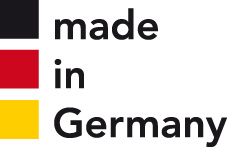Polymerisation reactions (1): formation of polystereneproperties of monomers Principle
The first polymerizations with styrene were carried out in 1930, since 1936 polystyrene is produced in large-scale industrially. Since that moment polystyrene counts to the most widely used plastics. Styrene can be polymerized under suitable conditions. The resulting plastic is hard, glassy and brittle. Styrene is polymerized to polystyrene. Learning objectives - Polymerization reaction to polystyrene
Benefits - Easy teaching and efficient learning by using interactive experimentation PHYWE-Software
- Experiment is part of a complete solution set with experiments for the topic Chemistry of Polymers matched with international curriculum: all topics are covered
|
Support base, variable
|
02001-00
|
1
| |
Stand rods, stainless steel, various sizes
|
02059-00
|
1
| |
Iron basin, d 100 mm
|
33201-00
|
1
| |
Wire gauze with ceramic, 160 x 160 mm
|
33287-01
|
1
| |
Spoon, special steel
|
33398-00
|
1
| |
Crucible tongs, 200 mm, stainless steel
|
33600-00
|
1
| |
Beakers, Boro, low form, various sizes
|
46060-00
|
1
| |
Beaker, 100 ml, plastic (PP)
|
36081-00
|
1
| |
Graduated pipettes, various sizes
|
36598-00
|
1
| |
Ring with boss head, i. d. = 10 cm
|
37701-01
|
1
| |
Protecting glasses, clear glass
|
39316-00
|
1
| |
Rubber gloves, size M (8), one pair
|
39323-00
|
1
| |
Glass rod, boro 3.3, l=200mm, d=6mm
|
40485-04
|
1
| |
Graduated cylinders, plastic, various sizes
|
46287-01
|
1
| |
Benzoyl peroxide/25% H2O 25 g(restricted export!)
|
30977-04
|
1
| |
Sea sand, purified 1000 g
|
30220-67
|
1
| |
Butane burner with cartridge, 220 g
|
32180-00
|
1
| |
Styrene 250 ml
|
31858-25
|
1
| |



